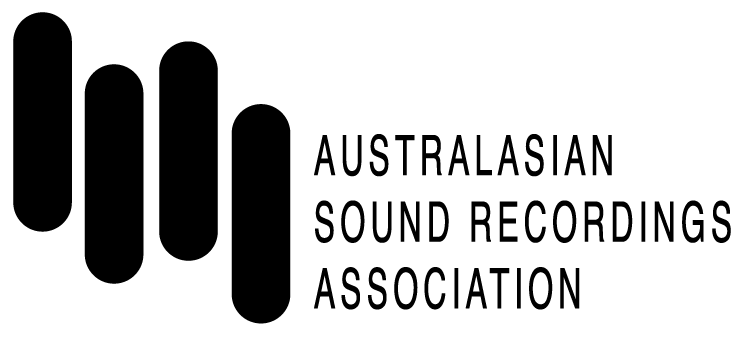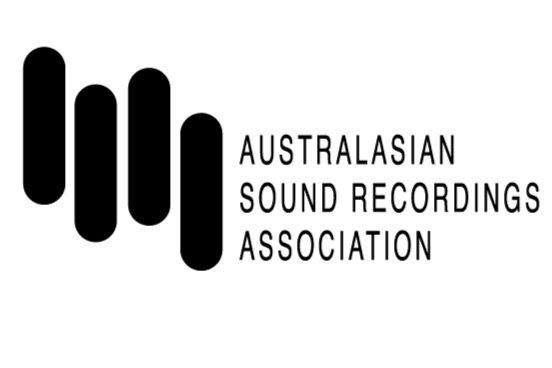ASRA 2023 Conference
‘A Century of Radio Broadcasting’
Canberra, Ngunnawal and Ngambri Country and online
2-3 November 2023
Day 1
Thursday, 2 November 2023
Conference Registration
8:30
Welcome
9:30
Mai Katona - Alice Moyle Lecture
9:45
Mai Katona, a Djok woman and member of the Stolen Generation, has been instrumental in establishing an Indigenous radio presence across Australia, beginning with Wayee radio in Hobart, in 1979.
Mai will talk about her experiences of setting up the first Indigenous radio presence in Australia. From the early days of requesting a fifteen minute timeslot on a local Hobart radio station, to working with staff at the Top End Aboriginal Broadcasting to help them plan for programming, and develop interview skills, through to touring the Torres Strait in a tinnie to help set up support for the establishment of an Indigenous radio station on Thursday Island.
Her work has had a lasting impact. Radio has proven an ideal way for Aboriginal people to be heard, and to raise issues such as the need for better health, housing and education. A special journalism course was set up at the Batchelor Institute to develop skills of Aboriginal radio presenters, and the radio station on Thursday Island is now going to expand to five other islands.
Mai Katona, a Djok woman, was born in Kakadu in 1942. She has led a truly remarkable life. She describes it as a journey from the bush to the city. A child of the Stolen Generation, she was taken away from her family at the age of ten, to be brought up in the Retta Dixon Home near Darwin, NT.Mai went on to make what, by any standard of measurement, has been an impressive contribution for Indigenous Australians. She helped establish an Indigenous radio presence across Australia, she was instrumental in beginning two Indigenous health centres in Hobart and Darwin, and she travelled to many third World countries to help women set up their own businesses through Credit Unions. She travelled to South Africa as one of Australia’s official observers at the South African election where Nelson Mandela was elected president.Johanna McMahon, National Film and Sound Archive of Australia
11:15
Don’t forget to save! An introduction to podcasts and their preservation
Recently, many cultural institutions have produced podcasts for their audiences, however few are preserving podcasts. Where did podcasts come from? Why should we care about them? And what can be done to preserve them? This paper will begin to answer these questions, providing an overview as to the cultural significance of podcasting, examining why podcasts are particularly at risk as a fully born-digital online format, and delving into how podcasts can be incorporated into audiovisual collections, using the National Film and Sound Archive of Australia as an example.
Johanna McMahon is an archivist and curator at the National Film and Sound Archive of Australia, where she works across the acquisition, cataloguing and interpretation of a range of audiovisual material. Her recent collection development work has focussed on video games and podcasts. Johanna has a background in art history, and she has previously worked with the Australian prints and drawings collection at the National Gallery of Australia.Rahnee Alvarez & Jon Steiner, ABC
11:45
There Are Many Paths but Only One Journey: Radio Archiving at the ABC
Archiving radio at the Australian Broadcasting Corporation (ABC) has continually evolved to adapt to changing technologies and production workflows. With 95% of the physical collection now digitised and the automated capture of new content via a MAM on the horizon, Rahnee and Jon will look back at how things have changed over the last couple of decades, the challenges encountered along the way, and where things currently stand.
At the turn of the millennium, ABC Archives was creating its own copies of broadcast content for the collection; now, radio production units have handed over all their physical media.
In 2001, the Netia system was introduced, making ABC Radio an early adopter of digital-born production but adding another layer to the whole shebang. An enormous digitisation project in 2021 included the relocation of many thousands of audio items from other states to Sydney for appraisal and possible inclusion in the collection. Mass digitisation of the audio collection has enabled the downscaling of in-house digitisation resources, facilitated the bulk transfer of assets to the National Archives, triggered the disposal of thousands of excess copies, and most importantly, made a wealth of audio material readily available for ABC program making. A lot has been achieved, but it’s been a complicated road!
Rahnee Alvarez is the Digitisation and Preservation Manager for ABC Archives. She has previously spent 18 years at the National Archives of Australia, working in a wide variety of roles and has also worked at the NFSA in Sydney.Jon Steiner is the Digitisation and Preservation Team Lead for ABC Archives. He has been working with the ABC’s collections for 21 years.Guy Tranter, ABC
12:15
Filling in the gaps of a century: the ABC’s written archives
Before public ownership, right from the opening of 2SB (2BL), the ABC’s history covers the whole radio century. Recorded sound is almost absent for the start of that century, but we have written archives to fill in the gaps. This gives us a good picture of what daily radio was like from the 1930s. The ABC has also been covered by Commonwealth archives legislation. As the volume of recorded sound increases exponentially over time, the written and photographic record supports this content as well as illustrating it. The variety of archival records provides views of many aspects of ABC output and activities. This will be illustrated with examples from the ABCs collection.
Guy Tranter is the Documents Officer in ABC Archives’ Metadata and Content Information Policy team. He specialises in records in document and image format as opposed to recordings of program output. His 32 years at ABC Archives have included the transition from paper to electronic recordkeeping, and major digitisation projects for both paper records and imagesCommunity Radio Panel
1:30
Warren Barnett
Broadcast and Production Manager of Highland-FM 107.1, ex Sony/FestivalMatthew Hopkins
National Archives of Australia, Eastside 89.7 FMMichelle O’Connor
Charles Sturt University and ex station manager 2MCECrispian Winsor
National Film & Sound Archive of Australia, PBSFM
Chaired by Matthew Davies
ASRA, ex NFSA and ABC
Our panel brings a wealth and diversity of experience to a discussion of community radio. We will explore how our panel's professional interests and personal passions inform and influence their broadcasting activities and consider the history and evolution of community radio and how it connects with and creates communities of listeners.
Michelle O'Connor, Charles Sturt University
2:30
Beyond Time Calls and Weather - What Does Community Radio Sound Like?
In 2018, the Australian Federal Government approved changes to the Broadcasting Services Act 1992 s84, to include a requirement for community radio stations to broadcast material of local significance as a condition of their licence allocation. The changes occurred in the context of wider media law reforms to reorganise the conditions for media ownership in Australia. Amongst this backdrop and with communities at risk of reduced local news content, the changes to the Act were drafted to ensure that communities continue to be serviced with locally relevant content. The notion of local significance in the Act is broadly defined, as content that is (a) hosted, (b) produced, or (c) related to the licence area. The first two of these classifications are straightforward to interpret, however the third classification and understanding of how content ‘relates’ to a licence area is somewhat more ambiguous. In practice, broadcast material about local people, events and issues is relevant to a community, however further interrogation is required to understand the extent to which this content can be considered as being locally significant. This paper will present early findings from PhD research to investigate what local significance sounds like on the radio and will include themes to emerge from an analysis of programs from community radio station 2MCE on Wiradjuri Country in Bathurst, in regional New South Wales. 2MCE has been on the air since 1975 and this presentation will include a sound mix of archival recordings and excerpts from current programs to help convey a sense of the sound of the station.
Michelle O’Connor is Lecturer in Communication at Charles Sturt University. Her research interests draw from radio, listening, soundscape and radio art to explore notions of sound and place. Michelle has a background working in radio and was previously the station manager at community radio station 2MCE in Bathurst, New South Wales. She has received commissions as a freelance audio producer and is currently progressing through a PhD investigating radio as a sound medium and the ways in which radio may be able to reflect the sounds of place and community.Crispian Winsor, PBS FM & National Film and Sound Archive of Australia
3:30
How a community radio announcer merged into an archivist
Crispian will be giving an overview of his experience as a radio announcer on PBS FM in Melbourne and how this has influenced his role as a Curatorial Officer at the National Film and Sound Archive (NFSA).
Crispian Winsor has been an on-air announcer on PBS FM since 2008. His show, Radio City, is on Thursday afternoons from 1-3pm and he has presented over 500 episodes. During that time, he also co-presented the station’s breakfast show, The Breakfast Spread, for 5 years from 2011-2015. Since 2019, he has worked at the NFSA, focusing on projects such as their off-air radio capture program and the Radio 100 online exhibition which will go live later in November.John Lanser
4:00
Voice of the Mountains
2KA Medlow Bath studio in 1936 [courtesy of Ian Maddock]2KA was one of a rash of regional ‘wireless’ stations which came on air in the 1930s, but its ambitions were compromised from commencement by a terrain hostile to transmission technology. Political opportunism would make 2KA less the “Voice of the Mountains” (as it was badged) than the voice of factional interests seeking to access Sydney metropolitan audiences. Yet the power struggle which runs through 2KA’s history was more technical than political … a persistent pursuit of increased authorised watts “into the aerial” to counter what one PMG engineer described as “the worst earth conductivity in the Commonwealth.”
John Lanser is an (almost) retired lawyer, a member of the Royal Australian Historical Society and the Blue Mountains Historical Society and past president of the Australasian Pioneers’ Club, the journal of which he edits. He holds an Amateur [Radio] Operator’s Certificate of Proficiency and his interests include domestic disc recording devices and early Australian film industry technology.Marilyn Sue Dooley
4:30
Historic Australian Radio as Community Education and Curated Product
This presentation will consider the uses and value of radio in the context of archiving, curating, preserving and presenting historic radio programs as an adjunct to education and community groups. Also, the selection and production of a series of CDs of radio recordings for public sale as archival outreach, will be discussed.
Marilyn Sue Dooley was with NFSA from opening in 1984 till November 2007; as the Archive's first Education and Public Activities Officer, then Manager of Public Programs, and later, operating a Research & Academic Outreach Program.
During her time at NFSA, Marilyn created a schools' program and kit for the Radio Exhibition "On Air", as well as community presentation of historic radio programs from Soapies to Serials, News and Drama.From 1989-2004, Marilyn was a regular radio broadcaster of film reviews on ABC radio in Canberra and Capricornia.
In August this year, Marilyn presented NFSA Alumni sessions for U3A.








![2KA Medlow Bath studio in 1936 [courtesy of Ian Maddock]](https://images.squarespace-cdn.com/content/v1/5fcd8ab82951692d4256d604/00c56045-07f1-4b5c-808e-ac72c3630e19/Medlow+Bath+studio+1936.jpg)
